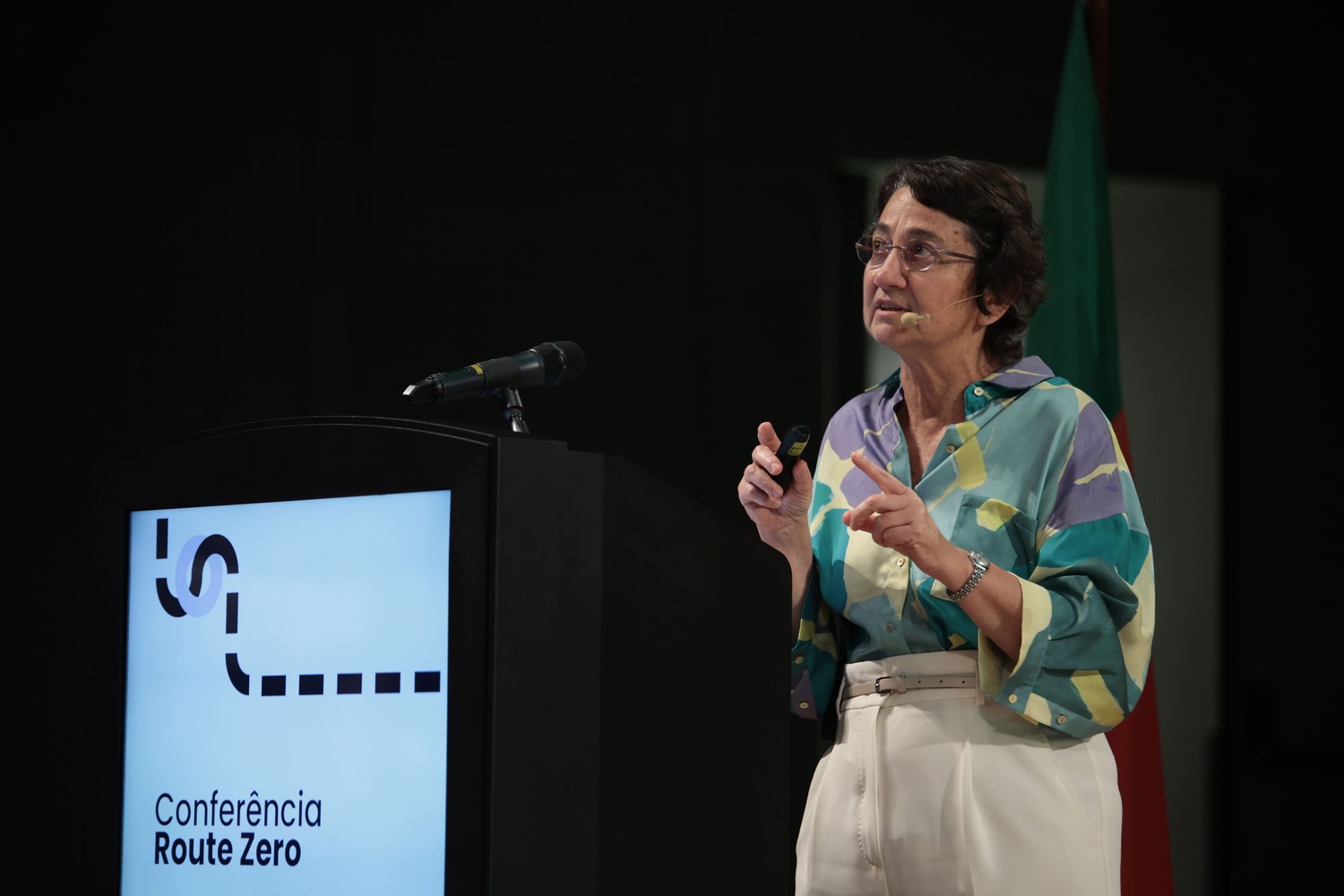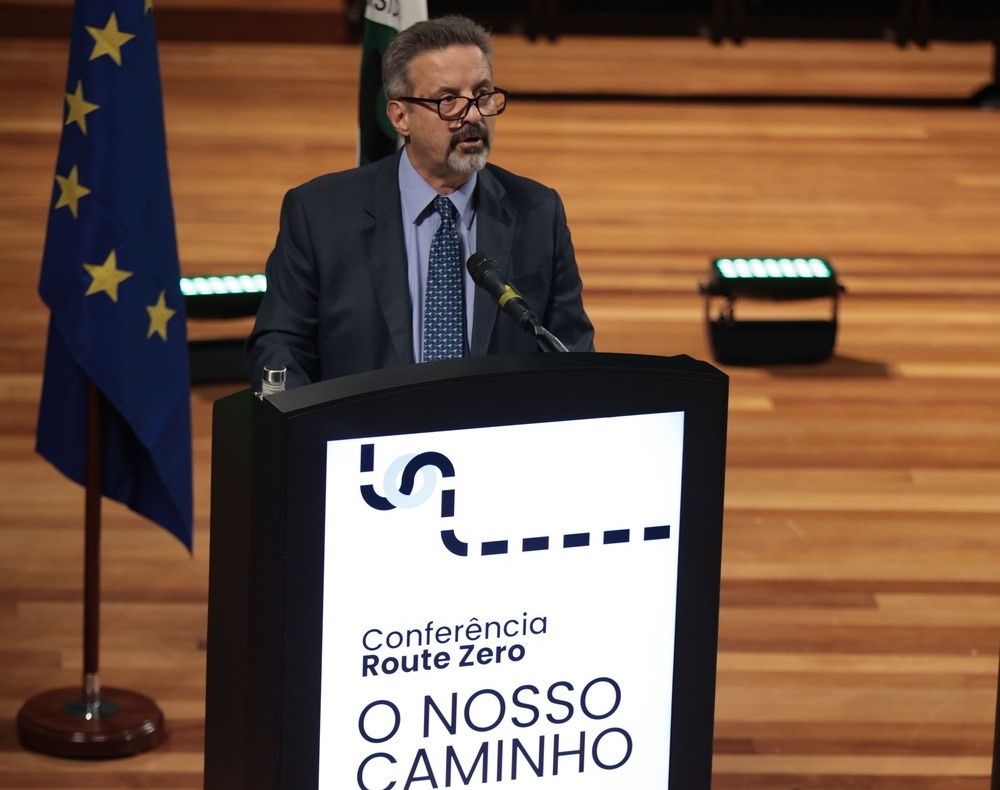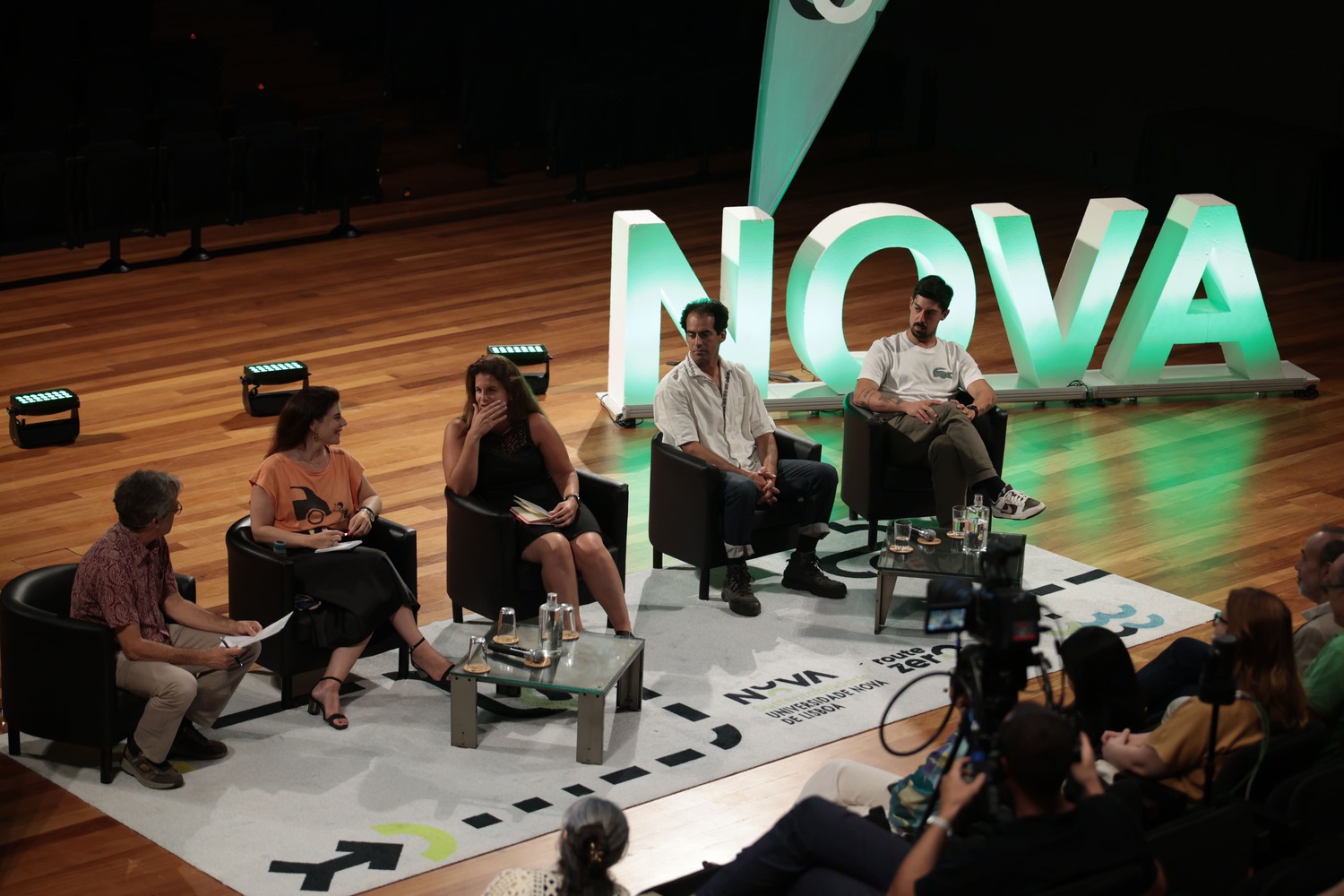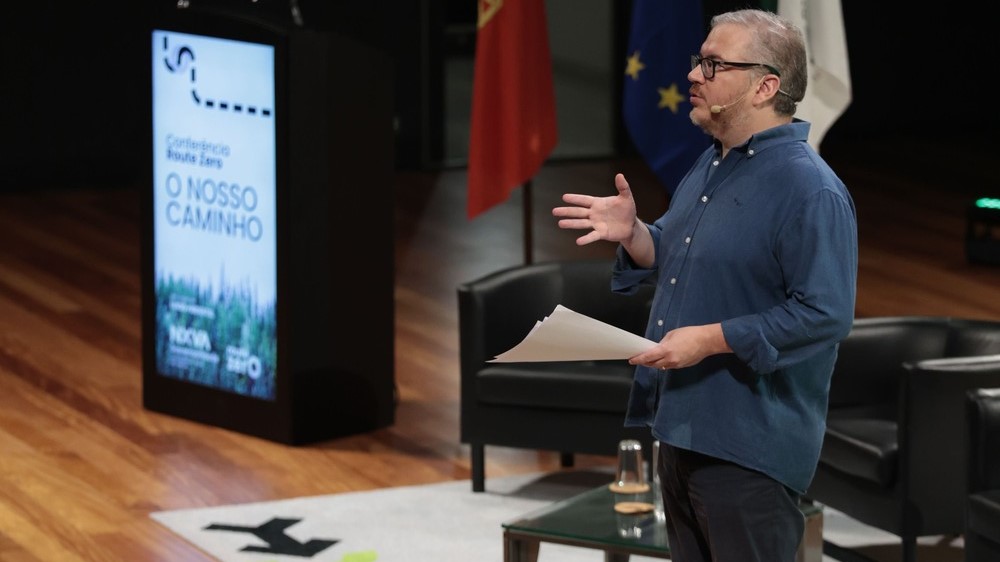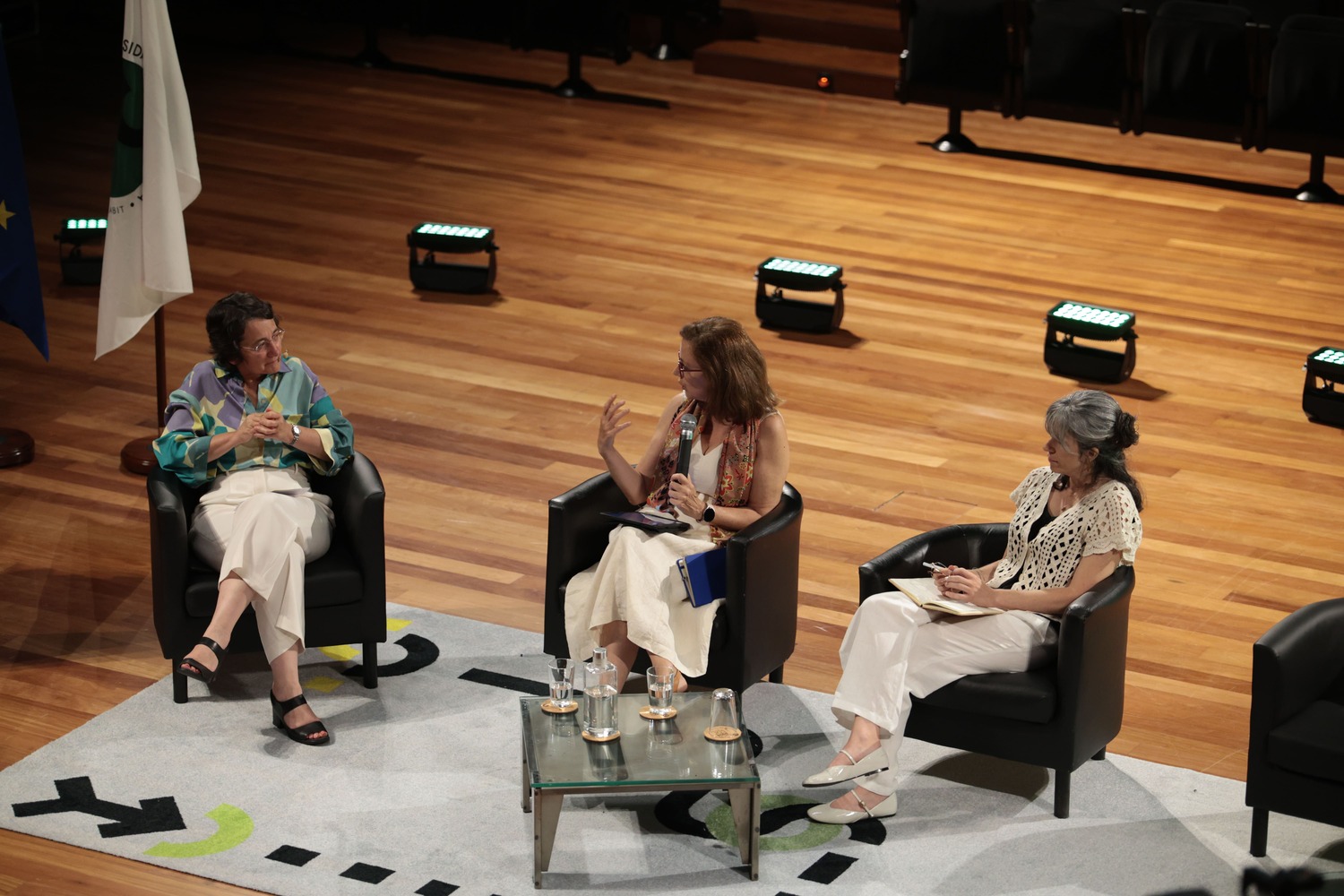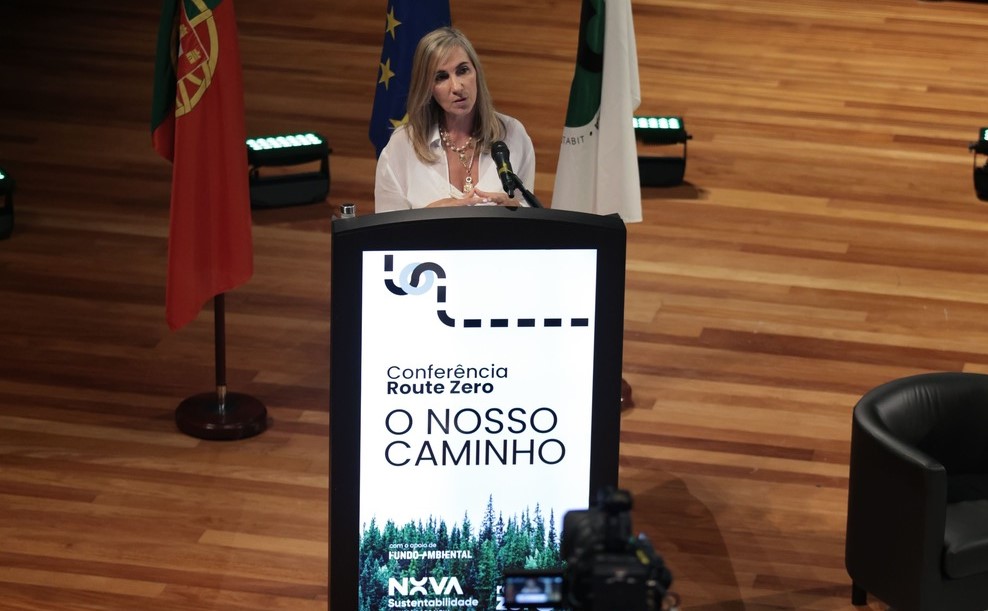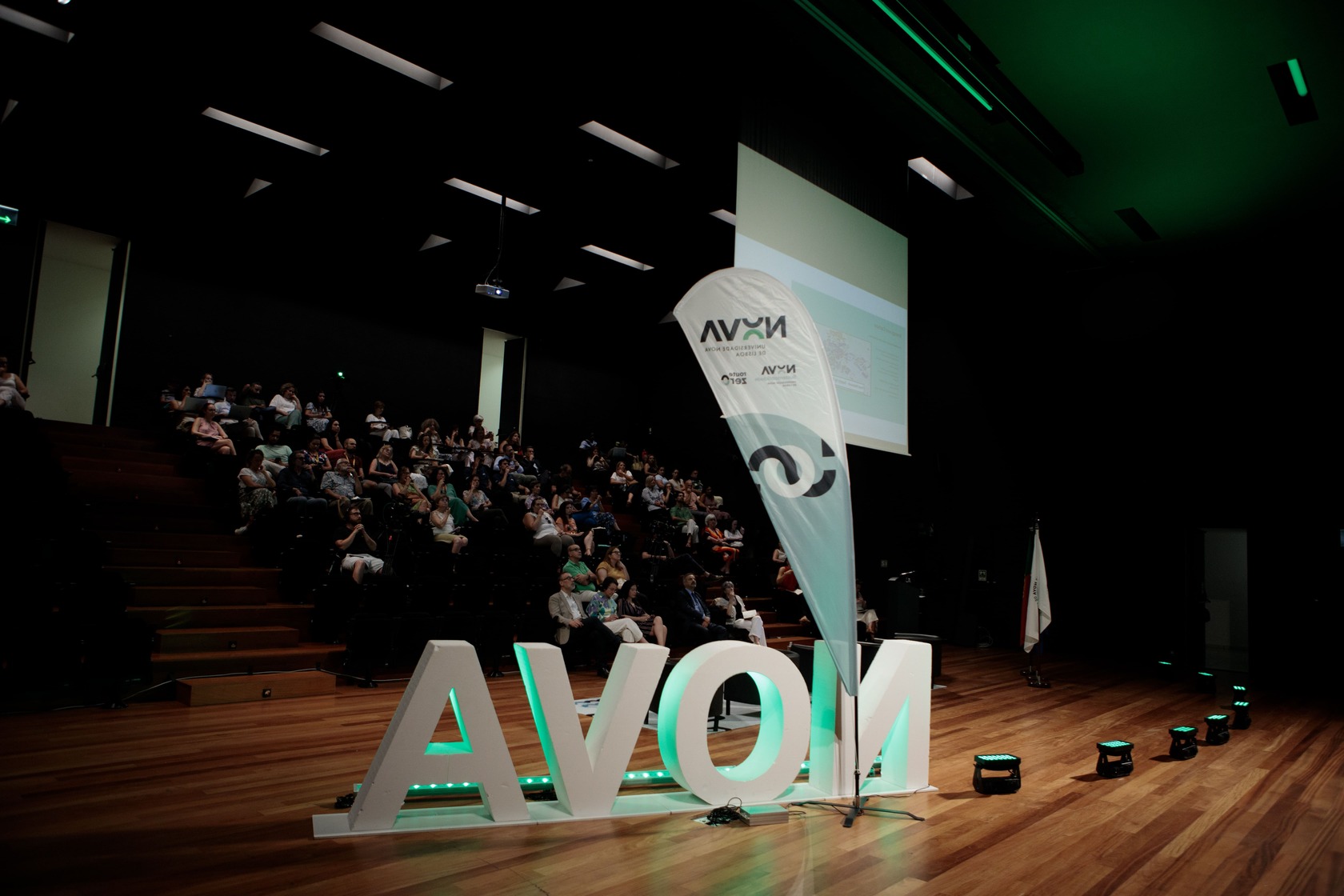The Rectorate Auditorium at NOVA University Lisbon played host to the Route Zero Conference, a landmark event at which the institution publicly presented its Roadmap for Climate Neutrality and Resilience. The result of two years of collaborative work, the roadmap demonstrates NOVA’s commitment to sustainability and encourages the entire academic community to work towards a more responsible and resilient future.
During the opening session, Rector João Sáágua emphasised that ‘this moment comes with great responsibility: to make decisions that will shape the next 50 years and beyond’. He also emphasised that sustainability ‘is not a peripheral concern — it is central, foundational, and urgent.’
Júlia Seixas, the Pro-Rector responsible for Sustainability, then took to the stage to present the pillars of the Route Zero project. She explained that ‘sustainability is not a static destination; it is a dynamic process’. NOVA has set itself ambitious decarbonisation goals, including reducing Scope 1 emissions by 95% by 2040, as well as taking concrete action in Scopes 2 and 3. This includes producing solar energy, certifying sustainable laboratories, and implementing green mobility and procurement policies. ‘We decided to move forward with this project because it requires us to understand, be aware and act,’ she said, adding that ‘everything is being done with the entire NOVA community’.
The following session featured international representatives such as Stephanie Panichelli-Batalla and Parvez Islam from the University of Warwick and Stefan Gumhold from the Technical University of Dresden — all of which are partner universities of NOVA in the EUTOPIA alliance — who shared their experiences and strategies for achieving carbon neutrality.
The conference also included a roundtable discussion with guests from the “Inquietos por Natureza” podcast – available to listen here – moderated by environmental journalist Ricardo Garcia. Garcia noted that “the only year we managed to reduce global emissions was during the pandemic, when the world stopped. Now, we don’t want to stop the world; we want to change the way we live.”
This was followed by a presentation by Marco Neves, a professor at NOVA FCSH, who explored the origins of five challenging terms related to climate change, such as “transition,” “mitigation,” and “resilience,” and reflected on the significance of language in conveying sustainability. Regarding the word “resilience,” he explained: “Resilience is the ability to bounce back and recover after something negative. It’s more related to the term ‘recovery’ than ‘resistance.'” He concluded that “sustainability is also a matter of communication, language, imagination, and our desire to keep talking.”
As reducing the ecological footprint of laboratories is one of the measures covered by the current agenda, the following panel, ‘Sustainability in Research Practice’, led by Júlia Seixas, reflected on the issue. Speaking remotely, Aaron Desmond (MyGreen Lab) recalled how his laboratory’s mission is to ‘create a global culture of sustainability in science and transform the industry into a global leader in the field’. Cristina Branquinho (CE3C-FCUL/CHANGE) shared her experience at the University of Lisbon and Margarida Prado (FC&T) explained how the process works within the European working group.
Ana Teresa Perez, President of the Climate Agency, delivered the closing remarks, presenting NOVA’s roadmap as “a concrete example of how knowledge is transformed into commitment and commitment into action,” emphasizing that “this type of initiative can make all the difference.”
More information about Route Zero
The full event is available here

